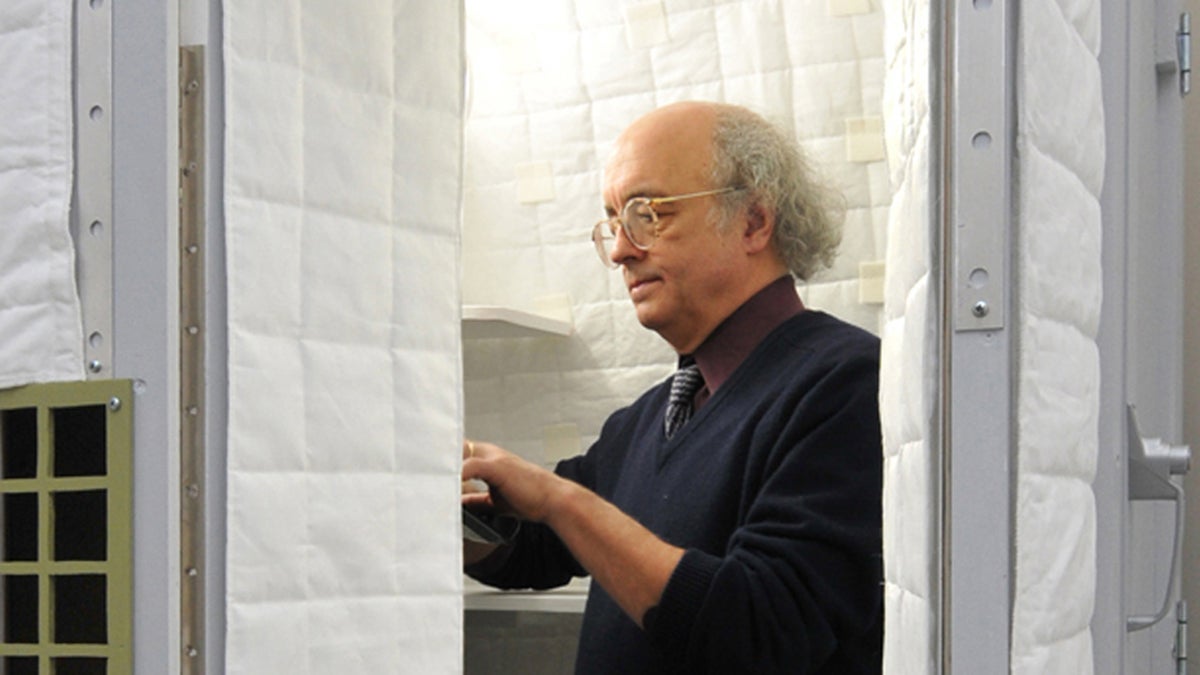Philly scientist working to help astronauts get a good night’s sleep

George Brainard, director of the Light Research Program, is a professor of neurology and neuroscience at Thomas Jefferson University. (Image courtesy of Jefferson)
It’s apparently not easy to catch shut-eye aboard the International Space Station.
Lighting, constant interruptions and the understandable excitement of space flight result in astronauts getting, on average, less than six hours of sleep per night.
Over time, continued deprivation can hurt mission performance.
“All of us know that we can lose an hour or two of sleep on an occasional basis, but to lose an hour or two of sleep day after day, week after week, month after month, is really problematic,” said George Brainard, a neuroscientist at Thomas Jefferson University.
Along with researchers at Harvard, Brainard is working with NASA to develop and test new LED lighting systems that may do a better job of inducing sleep.
“Light can be provided that can be good for the visual stimulation of the astronauts, but also to influence their biology and behavior, and, hopefully, stabilize their circadian rhythms,” he said.
NASA plans to replace aging fluorescent lights onboard the International Space Station in 2016 with LED lights that offer three settings. The morning, daytime and pre-sleep modes not only alter brightness, but also the wavelength of light emitted. Less blue wavelength light in the evening is believed to stimulate production of the sleep hormone melatonin.
Brainard and his colleagues are in Galveston, Texas, this week where they are accepting the Johnson Space Center Director’s Innovation Award.
“I think this is a very important innovation for NASA and, potentially, a strong benefit for the astronauts. However, we believe the principles being developed for space flight are going to be applicable here on Earth,” he said.
Brainard said his Philadelphia laboratory is looking into ways the technology could help non-space dwellers, including those who work night shifts, get more rest.
WHYY is your source for fact-based, in-depth journalism and information. As a nonprofit organization, we rely on financial support from readers like you. Please give today.

